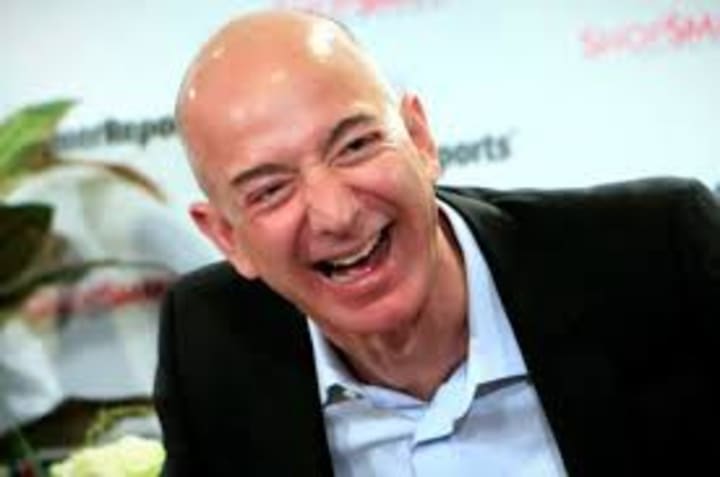Capitalism, Charity, and the Problem of Social Capital
Originally published on Medium.com, March 25th, 2018.

Exhibit A: Matt “Megatoad” Stonie, a 25 year old California native, famous for competitive eating competitions. His largest claim to fame is the above image, a 2015 Nathan’s Hot Dog Eating Championship victory over 8-time hot dog eating champion, Joey Chestnut, before losing the title the following year. With over 4 million YouTube subscribers and over 800 million YouTube views total, Stonie has a net worth of over $500,000 as of 2017, expected to break well over into $1 million, if it has not already.

Exhibit B: The other man shown here, is simply called Grandpa. This unknown elderly Indian man buys tons of cooking ingredients at both his own and a crowdfunded cost, to provide hours, even days of his own labor to cook massive amounts of food to feed orphaned Indian children at no cost to them. This is a family endeavor, with his children and grandchildren shooting and editing the footage, and uploading the video to social media and YouTube pages that they operate, to call attention to him.
Why do these two men matter, why am I examining them? Because they are polar opposites of each other. Matt Stonie is ever the famous, ever the glorious, as he happily describes Dollar Shave Club offers and mobile game endorsements before cooking up unbelievable amounts of food, and starting a timer to see how far he can push himself to eat it all as fast as he can. But what does Matt do for the people, his fans? By his own admission, not that much.

In interviews, Matt has stated that he has given “a few thousand” to charity, and yet “Megatoad” is one of the greats of competitive eating, a well-known face and voice, a figure who commands viewership, respect, and adoration from his fans. The channel is the epicenter of Stonie’s presence, his competition appearances and victories the icing on the proverbial cake that he endeavors to swallow as quickly as possible. But that inherently is the problem.

When we examine Matt as a YouTube personality and a competitive eater, it appears to really just be all about him. It’s about the YouTube views, about the endorsements, about the fame, the eating contests. As someone who cares about community engagement and taking care of people, it’s very hard for me not to see Megatoad as nothing more than a massively glutinous capitalist who shills out bullshit endorsements, and makes six or seven figures a year eating ungodly amounts of food doing absolutely disgusting challenges.
But when I first discovered Grandpa, I wept. This man is so wholesome, so completely and uncompromisingly good. He doesn’t appear to make money from this, his kids and grandkids do all of the filming, production, and YouTube for this channel. Charity is the whole point of Grandpa Kitchen, and I cannot help but notice the contrast. Every Grandpa Kitchen video begins and ends with touching music, and the faces of children of India that this man and his family are personally feeding. Their labor makes sure that children who have no parents are fed. Whereas Matt Stonie flies out of the gate with a rapid pace in every video, shilling for mobile games and other endorsements before you even watch him try to eat 14 pounds of Italian food in less than an hour. And Grandpa seems to just…want to feed kids.

Again, let us return to Matt Stonie’s wealth. He was reported to have a net worth over half a million, and is probably well over a million if not more by now. He has over 4 million subs, and the best impact for people in need, and his own community that he can muster is a few thousand to charity? Grandpa appears to be 100% about charity. Even if I had other figures to compare, there are so many people in America, too many, who would be defending Stonie and others’ “right” to wealth. They talk about what he, and by extension they, “deserve” in terms of wealth. But who really deserves what? I know that those kids deserve to eat. They deserve to survive and be well taken care of. Would Matt Stonie go and feed them? I don’t think so. He’s too busy winning food competitions.
This is the problem I have with Matt Stonie; everyone needs to survive and prosper. I don’t know Matt as a person, and I would like to believe that he is a good man. I want to believe that. But at a certain point, this obvious wealth and the ridiculous things he has to do in order to keep it just…feel wrong. It becomes a moral wrong to have such wealth, and to consume so much food in order to keep it, and worse grow it. This is just an Asian kid with a seemingly supernatural ability to eat, but he’s not really an important person. He doesn’t help enough people, he hasn’t done enough good to “justify” all of this. And I use “justify” in quotes because there’s really no way to justify it. And even if there was, are we really comfortable with the idea of rich people doing incessantly tiny acts of charity to earn seemingly massive, even infinite social capital?
Keep in mind the example of Jeff Bezos. A man with about $124 billion reported, who really isn’t all that interested in philanthropy, despite the fact that many news outlets have gushed over Bezos’ charitable nature. Bloomberg reports that his charitable donations during his time as Amazon founder and CEO have totalled above 50 or 60 million dollars, despite the fact that Amazon is set to become a trillion dollar industry. His charity kind of sounds good, right? At least he’s doing something, right? But that is the problem, because compared to what he could donate, his efforts become meaningless when we do the math.

Only when we look at this in context of his net worth, Bezos’ charitable efforts are comparably pathetic; at best case of $60 million donated, Bezos has given around .00048387 percent of his net worth. Bezos’ charity is so little to him, it is less than fractions of fractions of fractions of pennies comparably. It means nothing to him because he can part with it. He can part with it because it means nothing to him. Jeff Bezos gives table scraps, and with a few thousand donated of his half a million to over a million net worth, Matt Stonie is in a similar precarious position.
If we say for argument’s sake that Stonie has donated $5,000, then in his best case that is 1% of his wealth at his lowest net worth. In the worst case, it would be possibly less than half of one percent, and that is only if he has $1 million or more. If he has more than that, several million, his percentage falls more comparably to Bezos. But comparing Bezos to Stonie, Stonie has actually donated a massively larger percentage of his net worth than Bezos has. Neither case is impressive, and that is precisely the problem. The apathy of the rich, who donate infinitesimally small fractions of pennies to those in need, and who want to be worshipped for it.
This is the problem of the invulnerable perception of social capital; tens of millions is life-changing, and even city changing, to downtrodden working class Americans. Tens of millions will change many lives for the better, rehabilitate cities, and bring about real change. And yet it is peanuts to a man like Bezos. He doesn’t donate it because it is right to do, if he did he would donate billions. He would cure cancer with those billions, end hunger worldwide with those billions, end homelessness in the US with those billions. As could any celebrity of sufficient capital.
He can, he should, and he doesn’t. And neither do any rich people. Bezos donates meaningless tiny sums of capital because it gets the begging poor off of his back for a while, and all he has to do is give away literal table scraps, and those who need it will wash his feet and kiss his hands, expecting to see stigmata within Bezos’ palms. None of it is true, but it doesn’t change the effectiveness of large amounts of capital to save real lives. The gratitude that people feel is natural, but those like Bezos will do so because of the power it brings. And for that reason, were I not a more reasonable man of legal education, I would advocate for Bezos to be publicly hung, but I do not advocate for such, merely the fair redistribution of wealth.
In Matt Stonie, here is a rich young man, richer than I or any of my family ever may be, who does actual, measurable harm to himself and others by eating so much food that I can’t believe he isn’t already dead or about to die from any number of health complications. His “career” is taking food away from other people who need it, just because this is how his fame is “earned”. On a utilitarian philosophical level, the amount of good he does is dwarfed by the harm. Matt Stonie is absolutely subjectively, perhaps even objectively, a bad person. And the opposite is Grandpa, a man who appears to humbly and honestly do nothing but good. Does Matt Stonie’s wealth, his fame, his endorsements, his paltry few thousand to charities, does it justify all of this?

No. In my mind, it does not. Matt Stonie is no savior, he’s no patron of the downtrodden, he is no representative of so many millions in the working class. He’s a kid who shoves insane and unreasonable amounts of food into his face for an equally insane and unreasonable amount of money to do so. And for this, Stonie has a great ethical and philosophical problem. He could do more, much more for those in need, and maybe he will. I hope that he does. But so far, he hasn’t. And the longer he waits, the more of a crime his apathy becomes.
About the Creator
Johnny Ringo
Disabled, bisexual American socialist and political activist. Student of politics, aspiring journalist, and academic. Bachelor’s of Science in Criminal Justice.






Comments
There are no comments for this story
Be the first to respond and start the conversation.